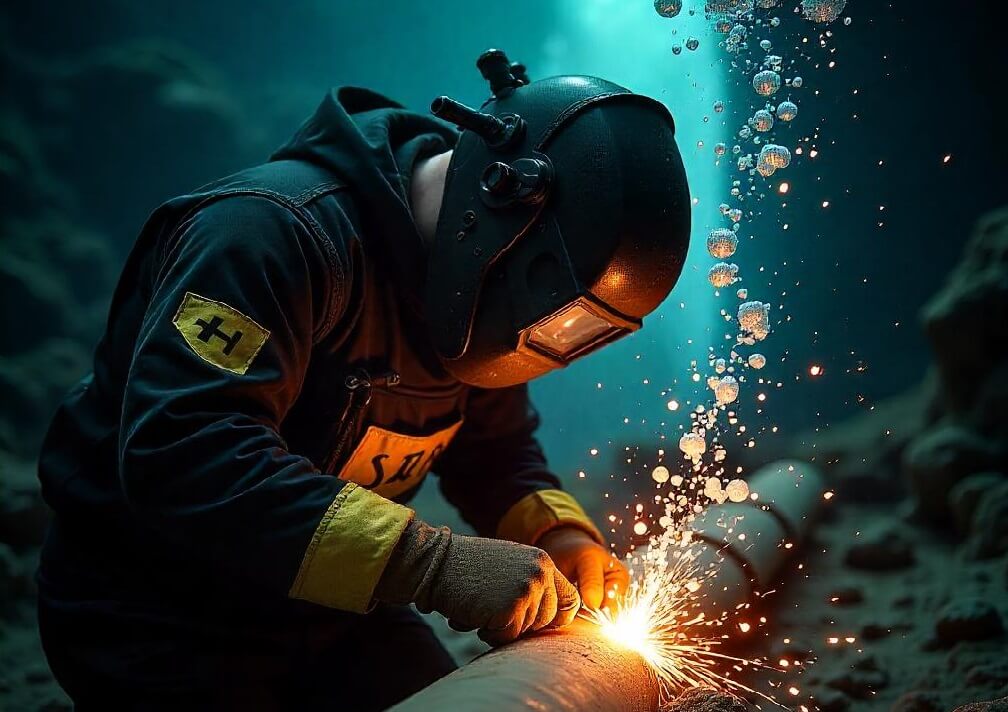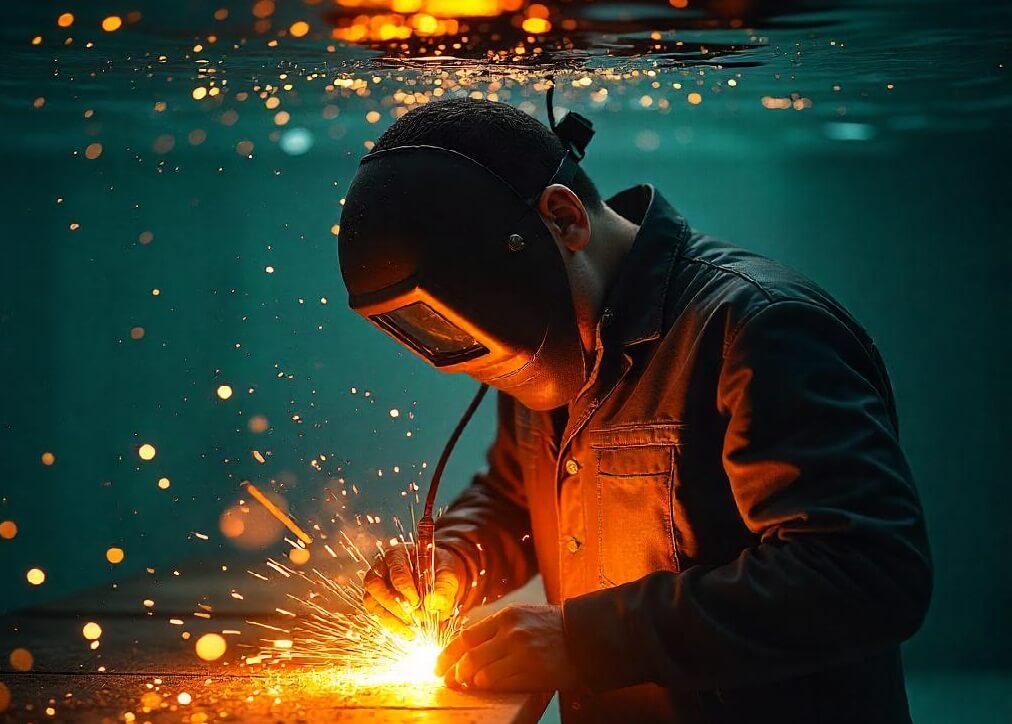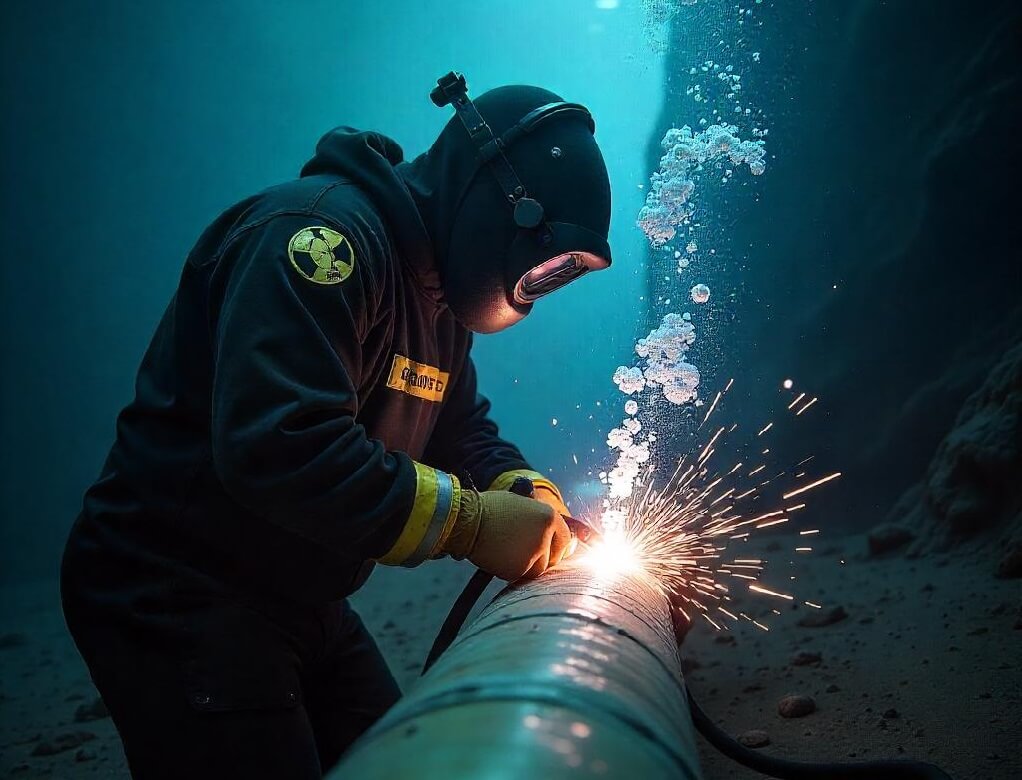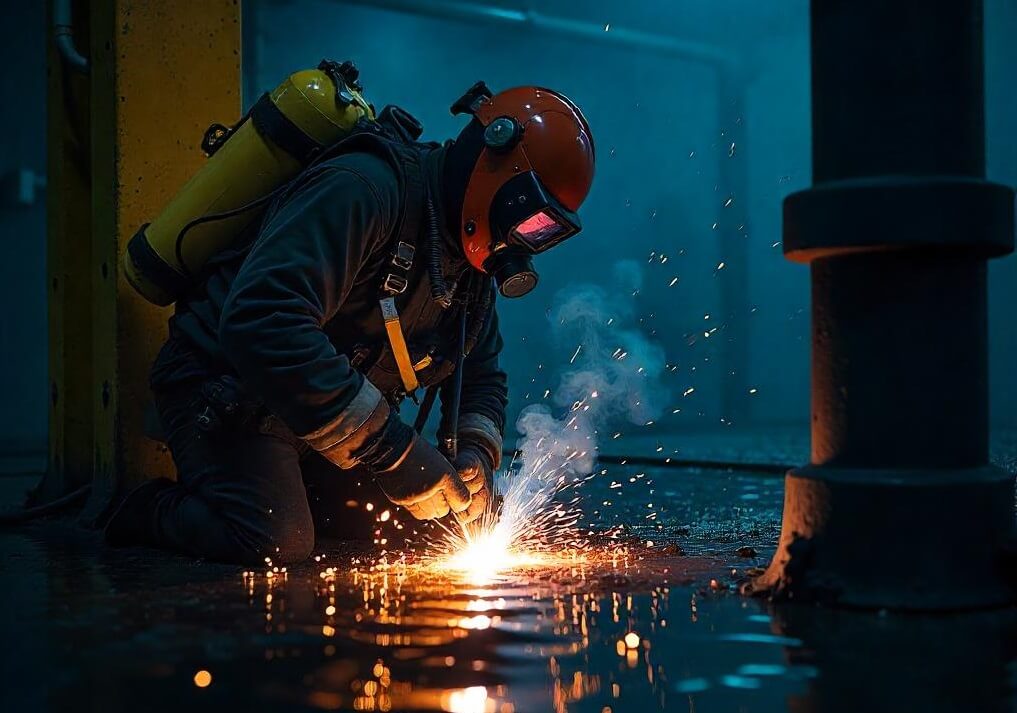
When you think of high-paying, high-risk jobs, underwater welding often comes up. It’s one of the most specialised and physically demanding careers out there—blending commercial diving with skilled welding to perform critical tasks deep beneath the surface. From repairing offshore oil rigs to maintaining ship hulls and underwater pipelines, underwater welders work in environments most people will never experience.
But how much do they actually earn? Is the pay worth the risks and training involved? In this blog, I’ll break down exactly what you can expect to earn as an underwater welder, what factors affect your income, and whether this daring career path is the right one for you.
What Is Underwater Welding?
Underwater welding—also known as hyperbaric welding—involves performing welds while submerged in water. It combines two highly skilled professions: welding and commercial diving. Welders may work in deep sea conditions or in shallow water, depending on the project.
There are two main types:
- Wet welding: Done directly in the water using special electrodes.
- Dry welding: Done in a dry chamber or “habitat” sealed around the structure, typically at deeper depths.
Both types require rigorous training, advanced safety procedures, and physical stamina. It’s not a job for the faint-hearted—but it can be incredibly rewarding.
How Much Do Underwater Welders Earn?
Underwater welding is well known for its high earning potential, especially for those with experience and advanced certifications. However, salaries can vary widely based on several factors.
💷 UK-Based Earnings
In the UK, entry-level underwater welders can expect to earn:
- £25,000 to £40,000 per year at the start of their careers.
With more experience and offshore work:
- £50,000 to £80,000+ per year is achievable.
- Highly experienced divers working in dangerous conditions can earn over £100,000 annually, especially with offshore oil and gas projects.
Many divers also earn daily or project-based rates, which can range from £250 to £1,000 per day, depending on the work’s depth, duration, and complexity.
💵 Global Earnings Overview
Income varies from country to country. In the US, for example:
- Average salaries range from $54,000 to over $100,000.
- Saturation divers (working at extreme depths) can earn $1,000–$2,500 per day during diving assignments.
- A full saturation diving project lasting several weeks can net a diver £30,000+ in a single month.
In regions like the Middle East or Southeast Asia, wages may be lower, but contracts often include benefits like accommodation, transport, and per diem allowances.

Key Factors That Affect Underwater Welder Income
So, what determines whether you earn £30,000 or £100,000+? Several key factors come into play:
1. Experience Level
As with any skilled trade, beginners start lower on the scale. More experienced underwater welders, especially those with specialist knowledge, can command much higher rates.
2. Depth of the Dive
The deeper you dive, the more you earn. This is because deeper dives involve:
- Higher risk
- More complex logistics
- Greater physical and psychological stress
Saturation divers, who spend days or even weeks living in pressurised environments, earn the highest wages.
3. Location of Work
Wages differ greatly depending on where you work:
- Offshore oil rigs in the North Sea or Gulf of Mexico pay more than inshore harbour jobs.
- High-paying countries include the US, UK, Norway, Australia, and the UAE.
4. Type of Project
Underwater welders may work on:
- Ship repairs
- Oil and gas platforms
- Bridge maintenance
- Nuclear facilities
- Pipeline construction
More dangerous or time-sensitive projects tend to pay significantly more.
5. Certifications and Skills
The more certified you are, the more valuable you are. Most employers look for:
- Commercial diving certification
- Welding qualifications (e.g., CSWIP, AWS)
- Specialised training in non-destructive testing (NDT) or underwater cutting
Certifications from institutions like The Welding Institute (TWI) or The Association of Diving Contractors International (ADCI) can give you a major edge.

What’s a Typical Underwater Welding Job Like?
It’s physically demanding and mentally challenging. You could be:
- Working at night or in low-visibility water
- Spending hours in cold, wet gear
- Dealing with currents, marine life, and restricted movement
- Living on offshore platforms for weeks at a time
Because of these extreme conditions, divers are paid not just for skill but also for risk, endurance, and flexibility.
Benefits Beyond Salary
While the financial rewards are significant, underwater welding offers more than just a pay cheque:
✔️ Travel Opportunities
You might work on projects around the world—from Arctic oil fields to Caribbean shipyards.
✔️ High Demand in Certain Sectors
Oil and gas, shipping, and renewable energy sectors (like offshore wind farms) are major employers with long-term projects.
✔️ Career Progression
With time, you can transition to:
- Dive supervisor
- Inspection diver
- Underwater engineer
- Marine safety consultant
These roles often offer higher salaries with less physical strain.
Is the High Salary Worth the Risk?
That depends on you. Underwater welding is not for everyone. It comes with:
- Physical strain: Long hours in tough conditions
- Mental stress: Isolation, deep dives, enclosed spaces
- Safety risks: Including drowning, decompression sickness, electric shock, and explosion hazards
However, if you thrive on challenges and enjoy working with your hands in dynamic environments, the high pay, adventure, and sense of accomplishment can be incredibly fulfilling.

How to Get Started in Underwater Welding
Here’s what you’ll need:
1. Get Welding Experience
Start with a qualification in welding—such as:
- Level 2 or 3 Diplomas in Welding
- NVQs or apprenticeships
2. Complete Commercial Diving Training
You’ll need to be certified by a recognised diving body like:
- HSE (Health and Safety Executive – UK)
- ADCI (US)
- IMCA (International Marine Contractors Association)
Courses are typically full-time and include both surface and underwater work.
3. Obtain Underwater Welding Certification
Specialised training combines diving and welding skills. Look for programmes that meet AWS D3.6 or CSWIP 3.1 standards.
4. Build Experience
Start with inland or shallow water jobs before moving to offshore or saturation diving roles.
Final Thoughts: Is It the Right Career for You?
Underwater welding offers excellent earning potential, a unique lifestyle, and the chance to work on exciting projects around the world. But it’s not just a job—it’s a full commitment to a demanding and adventurous profession.
If you’re fit, focused, and ready to invest in training, this could be one of the most rewarding career choices out there—both financially and personally.
Whether you’re looking to start fresh or level up your welding career, exploring underwater welding is well worth the dive.
